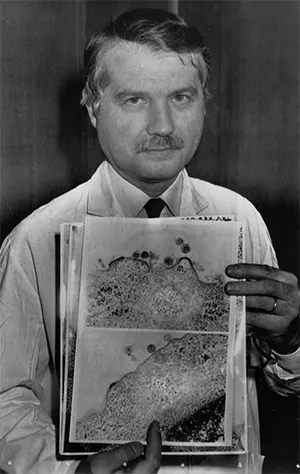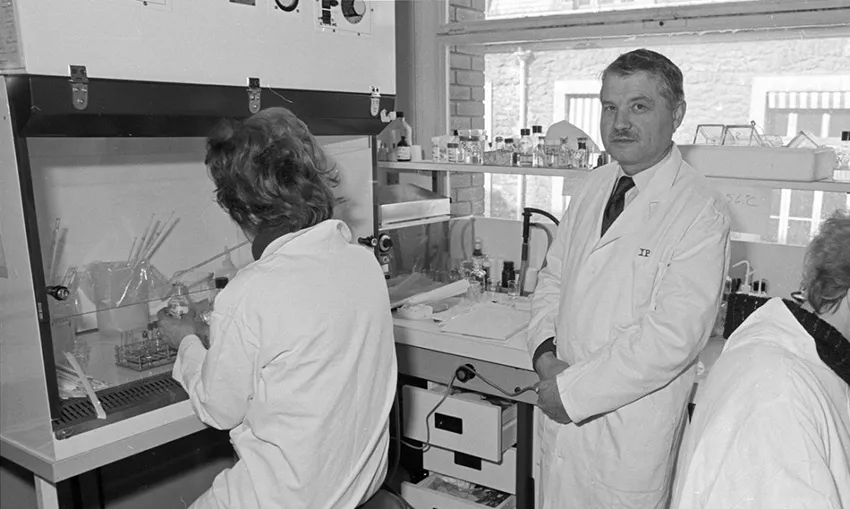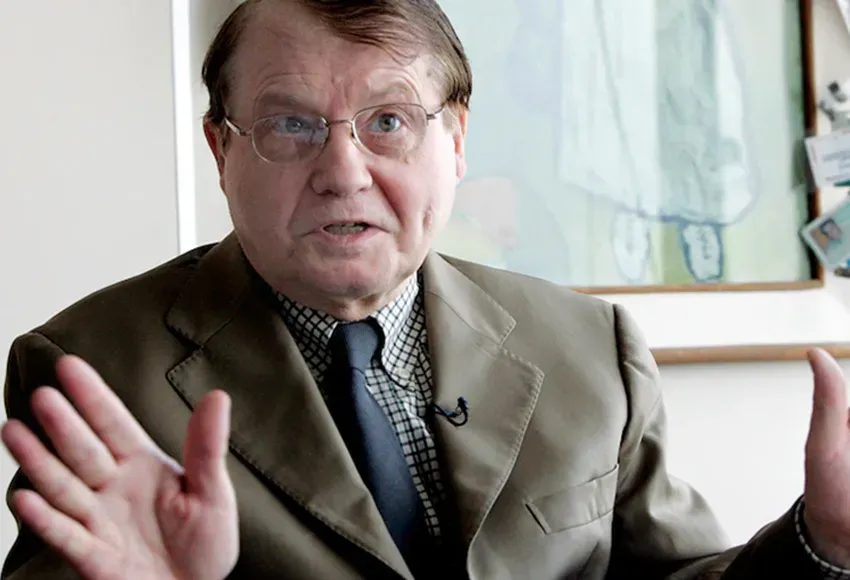French virologist Luc Montagnier, who won a Nobel Prize in 2008 for discovering the HIV virus, died on Feb. 8, 2022, at the age of 89.
Montagnier led the team that identified HIV in 1983 and shared his Nobel Prize in medicine with colleague Françoise Barré-Sinoussi.
Montagnier was born on Aug. 18, 1932, in Chabris, France. He lived through the German invasion of World War II and recalled being hungry most of the time. In June of 1944, bombing from Allied troops partially destroyed his home, and he despised wars for the remainder of his life.
In his new house, he set up a chemistry lab in the cellar, where he produced hydrogen gas, sweet-smelling aldehydes, and nitro compounds. Throughout his life, Montagnier excelled in chemistry and biology.
By 1957, his desire to become a virologist who used a modern approach to molecular biology was determined by his first description of infectious viral RNA from a tobacco mosaic virus. While at the Kingsley Sanders' lab in Carshalton, England, Montagnier first identified an infectious double-stranded RNA from cells that were infected with the murine encephalomyocarditis virus, which demonstrated how RNA could replicate like DNA for the first time.
From Carshalton, Montagnier went on to Glasgow to perfect his knowledge of oncogenic viruses. In 1972, he was asked by Jacques Monod, the head of Institut Pasteur, to create a research unit in the newly developed department of virology at the institute. Montagnier accepted this offer, which allowed him to develop new areas of research within viral oncology. His goal at that point was to detect viruses involved in human cancers.

Montagnier became involved with HIV/AIDS in 1982. There were only a few cases of the illness in France at the time, and young clinicians and immunologists were in search of virologists, specifically retrovirologists.
Montagnier's former student of virology called him to assist with a patient experiencing an early sign of HIV: lymphadenopathy. The patient was a young Gay man who travelled to the United States and was experiencing swollen lymph nodes in the neck.
The lymph node biopsy arrived on Jan. 3, 1983, and researchers had to characterize the virus biochemically and immunologically. In order to do so, they had to propagate the virus, which at the time, they could be done through blood donors.
The use of anti-interferon serum and the long-term cultures of T lymphocytes greatly facilitated the isolation of HIV. In June of 1983, Montagnier noticed similarities between HIV and the visna virus in sheep, infectious anemia virus in horses, and the bovine lymphocytic virus. It was discovered that HIV was a retrolentivirus, or a subfamily of viruses that cause long-lasting disease in animals without immunodeficiencies.

When isolated from patients displaying swollen lymph nodes, which was a common sign of early HIV infection, the viral isolates were called LAV, or lymphadenopathy-associated virus. In 1984 and 1985, two other research teams confirmed Montagnier's findings.
In the 1990s, Montagnier realized that research shouldn't only be conducted in wealthy labs in developed countries but also in other countries where many HIV/AIDS patients also had other illnesses, such as malaria and tuberculosis. Because of this, Montagnier joined with Frederico Mayor, the former director general of UNESCO, to start a foundation aimed at creating research and prevention centers in Africa.
Over the years, Montagnier acknowledged how HIV treatment and antiretroviral therapy has changed the prognosis of the disease from a death sentence to a relatively normal life.
However, not everyone in the world has access to treatment, and the virus remains ready to multiply when treatment becomes interrupted. Montagnier believed that basic and clinical research is still required to assist patients with HIV.


